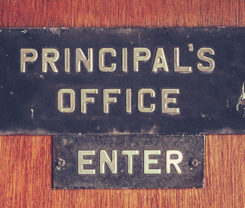Parent Engagement and School/Parent Council Questions
Our latest blog features parent engagement and parent/school council questions that parents have submitted for feedback. The answers provided here are the opinion of Parents Engaged in Education based on the experience of our members. Parents are always encouraged to work with board and school staff to get specific answers to their concerns. Often many parental concerns may be affected by applicable policies and procedures in place at their board.
Q: How can board members improve accountability to parents?
This answer assumes the parent is talking about school boards and not school councils.
The active involvement of parents is necessary to improving accountability. When parents are familiar with the requirements of Regulation 612 (S.15 1-4) which outlines the requirements of school boards to consult and report to parent, they can be better prepared to inquire about
areas they are concerned about. If you educate yourself on board policies, learning improvement plans, code of conduct, multi-year plans etc., then you can advocate for change where needed. Knowledge is power so you can ask for reports which address these areas, or attend public board meetings when a matter you are interested in is on the agenda.
Remember, that accountability these days often is contained in board communications that are available through their website.
In addition, you can always ask your school Principal how to find information from the board on various topics.
With respect to school councils, Reg.612 requires the board to respond in writing to all matters brought before them by school councils.
Q: How can boards improve their support of school councils?
This is a wide open question. Some boards already provide excellent support of their school councils and some are challenged by the lack of funding that would allow them to have a senior staff member assigned to this responsibility.
Some school boards rely solely on the Parent Involvement Committee (PIC) to develop resources and support the school councils in their board. This can mean a huge variance in one school board to the other. Since the PIC is largely made up of parent volunteers who already play an active role in their schools, it can be difficult for most to spend an extensive amount of time developing new board-wide initiatives.
The role of the PIC according to Reg.612 is to provide input to the board on parent engagement strategies and to support school councils.
Perhaps some of the actions that they could suggest to boards with respect to school councils could be that the board provide the following at the beginning of each school year:
- Provide a package to every council that includes:
- a copy of Regulation 612
- Board policies that affect school council operations (including the Code of Conduct and Conflict Resolution Policies)
- a welcome message from the Board which includes the contact information for the applicable board staff that support school councils
- a sample by-laws template and the process for adopting or amending by-laws
- financial processes information and any other relevant information that allows them to operate effectively and for all members to be informed so they can play an active role in their council
- Another thing the Board can do is provide a list of websites that have parent engagement and school council resources
- Remember that Reg.612 provides a process for parents/school councils to consult with the board and receive a response in writing to those matters raised. If you feel that school councils need more support at your Board, you can raise the matter to the Board for a response.
Q: How can a council ensure that your actions are transparent and representative of the wishes of the community?
This is a great question because it shows that a school council member really cares about the importance of being accountable to the school community.
There are a couple of actions that you could consider to accomplish this:
- You may consider doing a survey of your parent community. A short survey that solicits their input on the various topics that the council would like to consider during the school year.
- Take topics which are relevant to the entire school community (not personal issues a parent may be having with a teacher, administrator or other parent) and be sure that they are added to a council agenda.
- Communicate to the school community that the topic has been added to the agenda and invite all parents to attend. This is a great way to be accountable to parents showing that you consider all their input important as well as a way to increase parent engagement.
- To increase accountability to the community you have to increase communications by providing meeting agendas and minutes from those
meetings. Reviewing the minutes help the community stay abreast of the decisions made on each topic. Moving forward the community can than attend meetings that feature topics of interest. - Posting information for parents on a bulletin board in the school also provides a dedicated space where community members can stay up to date on the work of the council.
Q: Please provide further information about student, community and teacher/non-teacher representatives on school councils?
Again, an excellent question because often we just read about these roles as part of a council composition, but rarely stop to really understand their role.
Here is a brief description of these roles on a school council:
- Student – Reg. 612 calls for a student to be part of the council in secondary school. The purpose is to bring the voice of students to the parent council. Since the work of the council is for every student in the school, having the voice of the students on the council is important to be sure that the goals of the council are being met. In addition, student representative may bring requests from the students for support from the school council. Asking them for a report on student activities each meeting allows them to be an integral part of the meeting. The representative in the secondary panel is usually filled by a member of the student council. Although it is not required to have a student rep in elementary school, it is often a great opportunity for the older students to be part of the council meetings and present on student activities and what the students feel are the priority at the school. It gives the student the opportunity to gain presentation and leadership skills that they will need as they move into the secondary panel.
- Community Rep – this role is one that could be filled by many different people that support the work of the council. This is the role that allows for members of various ethnic groups that represent the voice of parents/students of that community group. The community rep could be a business in the area whose members support the work of the school, or a daycare representative that can be the voice of their program and help the council keep up with their activities in the school. You may invite someone to be a community representative from a specific group such as a member from an indigenous community that will provide an important voice on your council. They can help you understand this community and make suggestions on how the council can be more inclusive of parents from their community.
- Teacher Rep – the teacher rep is elected by the teachers at the school to be a member of the school council. Their role is to provide feedback from the teaching community to the council. They can bring forth the needs of the teachers, in addition to materials already provided by government funding. They may report on what they learned on their last Professional Development Day. They may bring funding requests forward from the teachers to support special activities, transportation or desperately needed classroom supplies to celebrate a special occasion in class. It is also their role to bring back questions or information from the council, as it relates to the teaching staff, so all teachers are up to date with the work and the feedback from the school council.
- Non-teacher Role – This is a position that often remains unfilled on a school council. This position is usually by appointment from the Principal when the council is established. Non-teaching staff in a school could include caretakers, administrative assistants and the like. It is beneficial if a member of the caretaking staff will take part as they can keep the council appraised of work being done in the school, challenges they are facing that perhaps the council can advocate on their behalf to help make a change, etc.
Share your questions with us!
We would love to answer more questions from you! We encourage parents to submit their questions via our contact form. We will do our upmost to answer them to the best of our ability or locate a resource that will provide the information you are requesting. Knowledge is power and by submitting questions we can all learn together!
Can’t wait to have your question answered? Not to worry, at Parents Engaged in Education we have many resources that can help you. Try our newsletter archive or brochures page. If you still can’t find the information you are looking for, be sure to check out our parent engagement forum and reach out to other parents and parent council members.
Like this article? Be sure to share it with other parents and school councils. Use the share buttons above and below this article.






